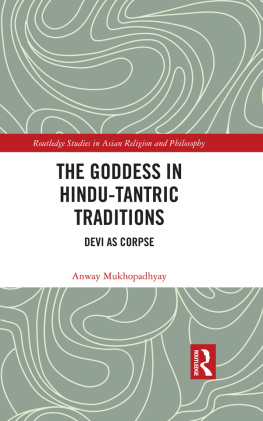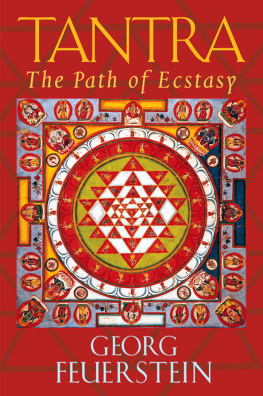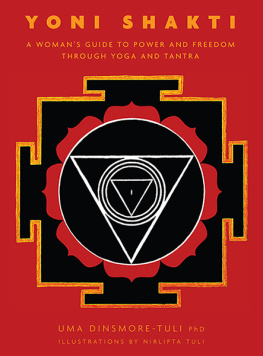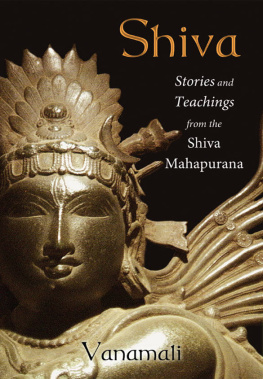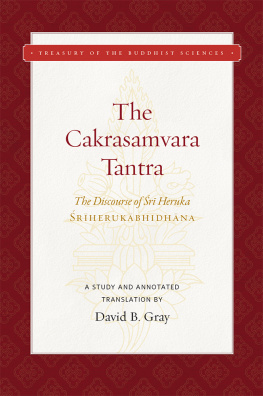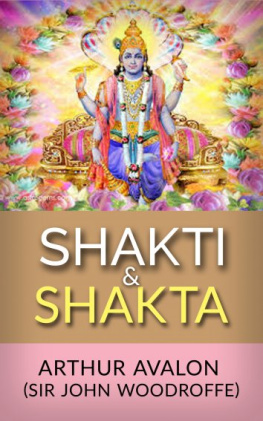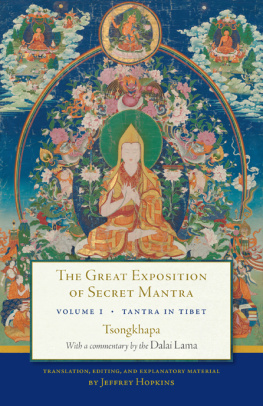Arthur Avalon - Shakti and Shakta
Here you can read online Arthur Avalon - Shakti and Shakta full text of the book (entire story) in english for free. Download pdf and epub, get meaning, cover and reviews about this ebook. year: 2018, publisher: Global Grey ebooks, genre: Religion. Description of the work, (preface) as well as reviews are available. Best literature library LitArk.com created for fans of good reading and offers a wide selection of genres:
Romance novel
Science fiction
Adventure
Detective
Science
History
Home and family
Prose
Art
Politics
Computer
Non-fiction
Religion
Business
Children
Humor
Choose a favorite category and find really read worthwhile books. Enjoy immersion in the world of imagination, feel the emotions of the characters or learn something new for yourself, make an fascinating discovery.
- Book:Shakti and Shakta
- Author:
- Publisher:Global Grey ebooks
- Genre:
- Year:2018
- Rating:3 / 5
- Favourites:Add to favourites
- Your mark:
- 60
- 1
- 2
- 3
- 4
- 5
Shakti and Shakta: summary, description and annotation
We offer to read an annotation, description, summary or preface (depends on what the author of the book "Shakti and Shakta" wrote himself). If you haven't found the necessary information about the book — write in the comments, we will try to find it.
Shakti and Shakta — read online for free the complete book (whole text) full work
Below is the text of the book, divided by pages. System saving the place of the last page read, allows you to conveniently read the book "Shakti and Shakta" online for free, without having to search again every time where you left off. Put a bookmark, and you can go to the page where you finished reading at any time.
Font size:
Interval:
Bookmark:
SHAKTI AND SHAKTA
BY
ARTHUR AVALON
(Sir John Woodroffe)
1918
Shakti and Shakta by Arthur Avalon.
This edition was created and published by Global Grey
GlobalGrey 2018

globalgreyebooks.com
A FRIEND of mine who read the first edition of this book suggested that I should add to it an opening Chapter, stating the most general and fundamental principles of the subject as a guide to the understanding of what follows, together with an outline of the latter in which the relation of the several parts should be shown. I have not at present the time, nor in the present book the space, to give effect to my friend's wishes in the way I would have desired, but will not altogether neglect them.
To the Western, Indian Religion generally seems a "jungle" of contradictory beliefs amidst which he is lost. Only those who have understood its main principles can show them the path.
It has been asserted that there is no such thing as Indian Religion, though there are many Religions in India. This is not so. As I have already pointed out (Is India Civilized?) there is a common Indian religion which I have called Bharata Dharma, which is an Aryan religion (Aryadharma) held by all Aryas whether Brahmanic, Buddhist or Jaina. These are the three main divisions of the Bharata Dharma. I exclude other religions in India, namely, the Semitic religions, Judaism, Christianity and Islam. Not that all these are purely Semitic. Christianity became in part Aryanized when it was adopted by the Western Aryans, as also happened with Islam when accepted by such Eastern Aryans as the Persians and the Aryanized peoples of India. Thus Sufism is either a form of Vedanta or indebted to it.
The general Indian Religion or Bharata Dharma holds that the world is an Order or Cosmos. It is not a Chaos of things and beings thrown haphazard together, in which there is no binding relation or rule. The world-order is Dharma, which is that by which the universe is upheld (Dharyate). Without Dharma it would fall to pieces and dissolve into nothingness. But this is not possible, for though there is Disorder (Adharma), it exists, and can exist only locally, for a time, and in particular parts of the whole. Order however will and, from the nature of things, must ultimately assert itself. And this is the meaning of the saying that Righteousness or Dharma prevails. This is in the nature of things, for Dharma is not a law imposed from without by the Ukase of some Celestial Czar. It is the nature of things; that which constitutes them what they are (Svalakshana-dharanat Dharma). It is the expression of their true being and can only cease to be, when they themselves cease to be. Belief in righteousness is then in something not arbitrarily imposed from without by a Lawgiver, but belief in a Principle of Reason which all men can recognize for themselves if they will. Again Dharma is not only the law of each being but necessarily also of the whole, and expresses the right relations of each part to the whole. This whole is again harmonious, otherwise it would dissolve. The principle which holds it together as one mighty organism is Dharma. The particular Dharma calls for such recognition and action in accordance therewith. Religion, therefore, which etymologically means that which obliges or binds together, is in its most fundamental sense the recognition that the world is an Order, of which each man, being, and thing, is a part, and to which each man stands in a definite, established relation; together with action based on, and consistent with, such recognition, and in harmony with the whole cosmic activity. Whilst therefore the religious man is he who feels that he is bound in varying ways to all being, the irreligious man is he who egoistically considers everything from the standpoint of his limited self and its interests, without regard for his fellows, or the world at large. The essentially irreligious character of such an attitude is shown by the fact that, if it were adopted by all, it would lead to the negation of Cosmos, that is Chaos. Therefore all Religions are agreed in the essentials of morality and hold that selfishness, in its widest sense, is the root of all sin (Adharma). Morality is thus the true nature of man. The general Dharma (Samanya Dharma) is the universal law governing all, just as the particular Dharma (Vishesha Dharma) varies with, and is peculiar to, each class of being. It follows from what is above stated that disharmony is suffering. This is an obvious fact. Wrong conduct is productive of ill, as right conduct is productive of good. As a man sows, so he will reap. There is an Immanent Justice. But these results, though they may appear at once, do not always do so. The fruit of no action is lost. It must, according to the law of causality, which is a law of reason, bear effect. If its author does not suffer for it here and now in the present life, he will do so in some future one. Birth and death mean the creation and destruction of bodies. The spirits so embodied are infinite in number and eternal. The material universe comes and goes. This in Brahmanism has been said (see Sanatana Vaidika Dharma by Bhagavan Das) to be "the Systole and Diastole of the one Universal Heart, Itself at rest -- the moveless play of Consciousness". The appearance and disappearance of the Universe is the nature or Svabhava of That which it ultimately is. Its immediate cause is Desire, which Buddhism calls Trishna -- or Thirst, that is desire or thirst for world-enjoyment in the universe of form. Action (Karma) is prompted by desire and breeds again desire. This action may be good (Dharma) or bad (Adharma) leading to enjoyment or suffering. Each embodied soul (Jivatma) will be reborn and reborn into the world until it is freed from all desire. This involves the doctrine of Re-incarnation. These multiple births and deaths in the transmigratory worlds are called Samsara or Wandering. The world is a Dvandva, that is, a composite of happiness and suffering. Happiness of a transitory kind may be had therein by adherence to Dharma in following Kama (desire) and Artha (the means) by which lawful desires may be given effect. These constitute what Brahmanism calls the Trivarga of the Purushartha, or three aims of sentient being. But just as desire leads to manifestation in form, so desirelessness leads away from it. Those who reach this state seek Moksha or Nirvana (the fourth Purushartha), which is a state of Bliss beyond the worlds of changing forms. For there is a rest from suffering which Desire (together with a natural tendency to pass its right limits) brings upon men. They must, therefore, either live with desire in harmony with the universal order, or if desireless, they may (for each is master of his future) pass beyond the manifest and become That which is Moksha or Nirvana. Religion, and therefore true civilization, consists in the upholding of Dharma as the individual and general good, and the fostering of spiritual progress, so that, with justice to all beings, true happiness, which is the immediate and ultimate end of all Humanity, and indeed of all being, may be attained.
Anyone who holds these beliefs follows the Bharata Dharma or common principles of all Aryan beliefs. Thus as regards God we may either deny His existence (Atheism) or affirm it (Theism) or say we have no sufficient proof one way or another (Agnosticism). It is possible to accept the concept of an eternal Law (Dharma) and its sanctions in a self-governed universe without belief in a personal Lord (Ishvara). So Samkhya, which proceeds on intellectual proof only, doe not deny God but holds that the being of a Lord is "not proved".
Next pageFont size:
Interval:
Bookmark:
Similar books «Shakti and Shakta»
Look at similar books to Shakti and Shakta. We have selected literature similar in name and meaning in the hope of providing readers with more options to find new, interesting, not yet read works.
Discussion, reviews of the book Shakti and Shakta and just readers' own opinions. Leave your comments, write what you think about the work, its meaning or the main characters. Specify what exactly you liked and what you didn't like, and why you think so.



